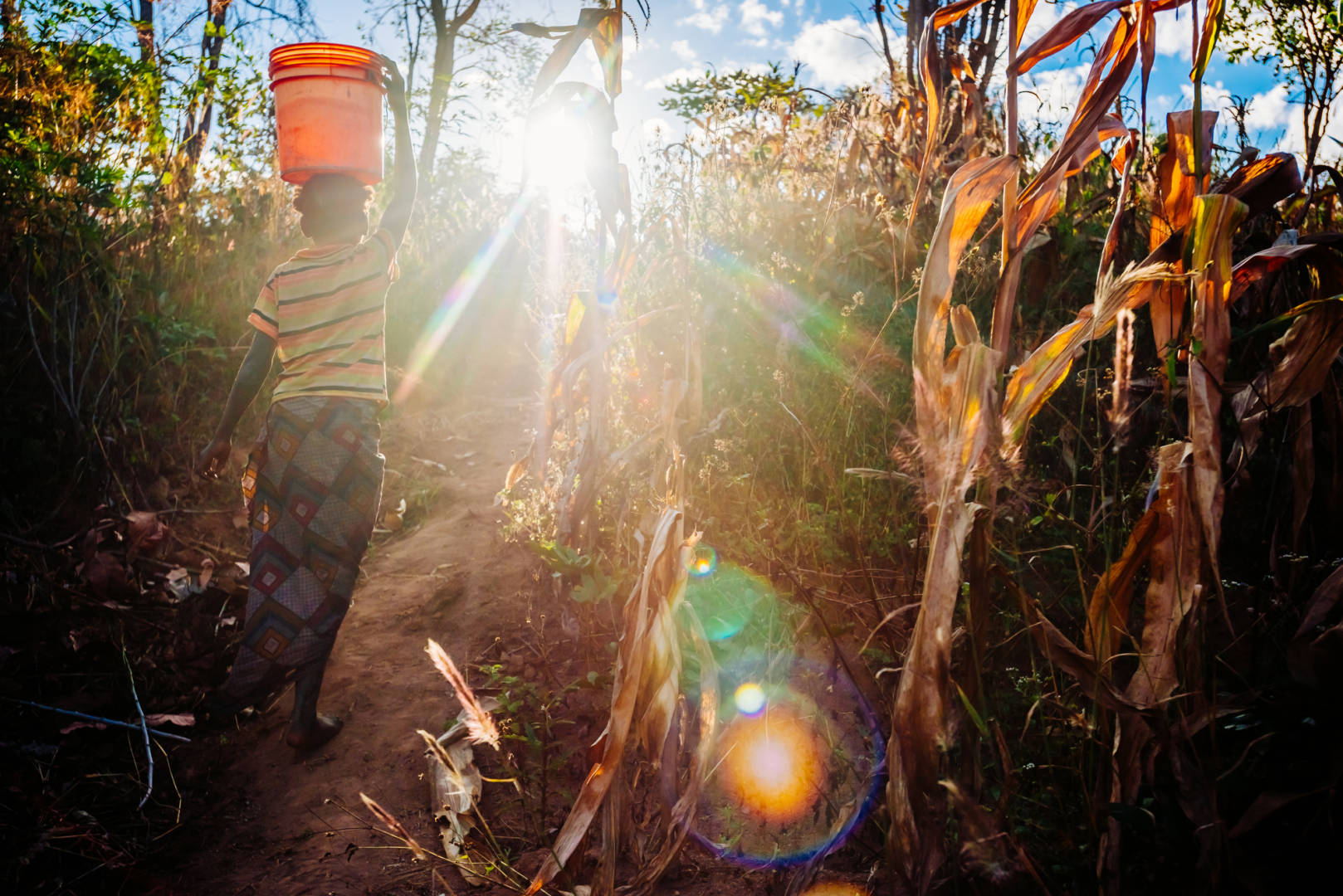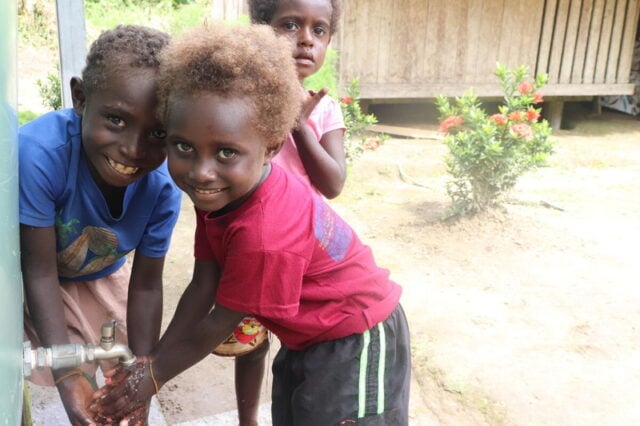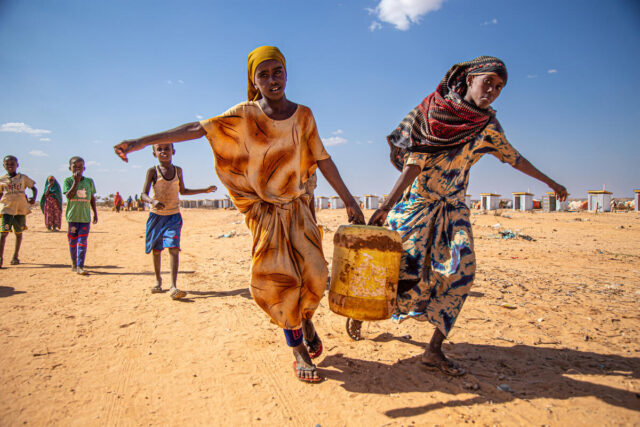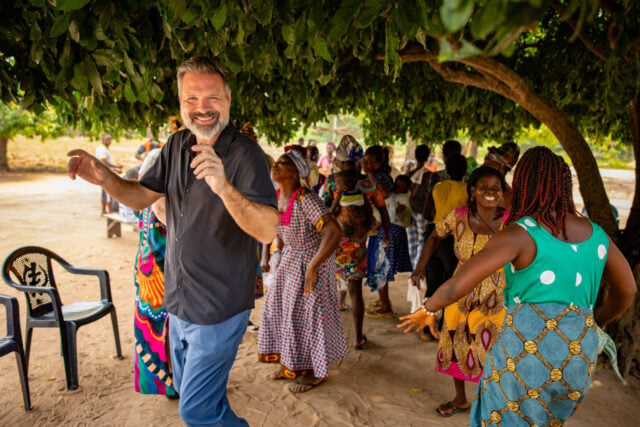The Kombe family in Zambia may be poor financially, but they are rich in love — the kind of love that makes the choices they are forced to make for their children even more painful.
“This is my beautiful family,” says Stancelas, introducing his wife and children. He sits under a thatched roof with a Bible open on his lap. The Bible, which he received from World Vision Zambia when he asked for one, is his source of comfort and hope. The family gathers close around their father and mother as they tell their story.
“I know child labor is wrong,” Stancelas says, but his children must collect water many times a day. The water they collect is filthy, and it’s a dangerous trek.
Leaves and dirt fill the pond they dip into for water. It makes the family sick. Sometimes they find animals, like monitor lizards, in the pond. Sometimes they find maggots. Snake bites are a danger; daughter Exhidah survived a snake bite but lost her toenail. It’s a constant reminder of the danger associated with collecting water. This community has also lost a good number of children to diarrhea, says Stancelas. The family is chained to collecting water. Instead of going to church, they get water.
Ruth, 11, collects water many times a day, sometimes putting two buckets on her head. The weight of the buckets makes her headache. Ruth wants to be a nurse. “I want to attend to patients in my community,” she says. But too often she misses school because of this horrible chore.
Ruth lives in Mwamba, in northern Zambia. World Vision started work in Mwamba in 2007 after the community appealed to staff for help. People were desperate. A drought had left the area without food. Children were working instead of going to school. The water they drank was dirty.
Today, improvements in Mwamba are the result of child sponsorship. There are 4,748 children in the program, and 70% have sponsors. So far, World Vision has sunk 50 boreholes in the area — three are mechanized systems, powered by solar energy. “We’re not just sinking wells,” says World Vision’s Charles Phiri, who manages the program. “It’s a holistic package.”
Every borehole is accompanied by training in sanitation and hygiene, and World Vision staff trained Stancelas and his family on good hygiene practices. The family put in a latrine, a dish rack to keep their dishes off the ground, a tippy tap — an ingenious way to elevate a water jug to keep water clean, a pit for garbage, and a bathing shelter for privacy.
And just a few months ago, World Vision Zambia’s Chimuka Hamudulu wrote with the thrilling news:
I’m excited to share pictures of Ruth today. She just made my day!
Her village received a borehole in July and they have been using it since August 2. I went to Ruth’s village and we made a stop at the new borehole on our way back. While talking to the headman, Ruth came running toward us. It was great to see her. I asked her what has changed with the new water source and she said, “I no longer have headaches!” I’m sure you all remember her explaining that she sometimes carried two buckets of water at a time to reduce the number of rounds she had to make.
Today her story and that of many others in her village is different. Thought I should share their joy with you all.
Clean water brings such joy — joy to a father who no longer must send his children to work and joy to a girl like Ruth whose life is now before her.




